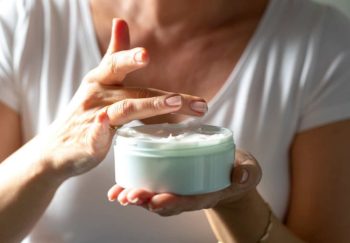Long ago, explorers traveled the ends of the earth searching for the fountain of youth. Today's explorers are scientists. They delve deep underground. They even look inside tiny cells that make up all living things. At UVA Health, scientists have accidentally stumbled on a rare find – an anti-aging detox approach that could help us live longer.
Secret to Longer Life
The new findings come from UVA researcher Eyleen Jorgelina O’Rourke, PhD, and her team. They've been trying to find what drives healthy aging and longevity. Their new work suggests a potential way to slow down aging. How? By reducing harmful byproducts of fat.
These byproducts are known as glycerol and glyceraldehyde. They naturally accumulate over time and have health-draining effects.
An Unexpected Discovery
This UVA Health discovery was unexpected. O’Rourke explains: "We went after a well-supported idea that the secret to longevity was the activation of a cell-rejuvenating process. This process is called autophagy. But we ended up finding an unrecognized mechanism of health and lifespan extension."
Their discovery was the activation of 2 enzymes. These enzymes are very well studied because of their role in ethanol detoxification. [Ethanol is the alcohol in beer and bourbon].
"This existing knowledge greatly facilitates our search for drugs that can specifically activate this anti-aging process,” O’Rourke says.
Anti-Aging Approach Revealed in Worms
In their search for the fountain of youth (or at least secrets to slow down aging), O’Rourke and her graduate student Abbas Ghaddar and postdoctoral student Vinod Mony turned to tiny worms. Fun facts about these microscopic soil dwellers. They:
- Are an invaluable tool for biomedical research
- Share more than 70% of our genes
- Were used exclusively in research discoveries that led to 2 Nobel prizes in medicine
In short, the scientists found that they could prompt an anti-aging response in worms. They made a particular gene, adh-1, produce more of an enzyme. This prevented the toxicity caused by those fat byproducts – glycerol and, indirectly, glyceraldehyde. The result? Worms lived longer, healthier lives.
Fountain of Youth Dubbed AMAR
O'Rourke is with UVA’s Department of Biology and the UVA School of Medicine’s Department of Cell Biology.
She and her team of scientists named their discovery AMAR. This is the Sanskrit word for immortality. But for this research, AMAR stands for “Alcohol and aldehyde-dehydrogenase Mediated Anti-aging Response.”
So will findings in worms hold true for people? To see, the researchers took several more steps:
First, they confirmed that the enzyme had similar beneficial effects on lifespan of yeast (what makes our homemade bread rise).
Then, they scoured through research looking at gene activity in creatures, including humans, who had undergone fasting or calorie restriction. (Both fasting and calorie restriction are known to extend healthspan and lifespan.)
Sure enough, the scientists found increased levels of the anti-aging enzymes in all the mammals tested, including people.
Extending How Long We Live in Good Health
The scientists suspect that our levels of glycerol and glyceraldehyde naturally increase over time because they are byproducts of fat. And of course, we store more fat as we age. Their discovery may offer a way to:
- Reduce toxins from fat
- Extend the number of years we live in good health
- Help us shed some extra pounds
Keep Up With the Latest Research from UVA Health
Sign up for Healthy Balance
“We hope to attract interest in developing therapeutics that target AMAR,” said O’Rourke.
She adds, “With age-related diseases currently being the major health burden for patients, their families and the healthcare system, targeting the process of aging itself would be the most effective way to reduce this burden. We want to increase the number of years of independent healthy living for all of us.”
Want to Delve Deeper?
The researchers have published their findings in the scientific journal Current Biology.
The research was supported with several grants, including from the National Institutes of Health.


